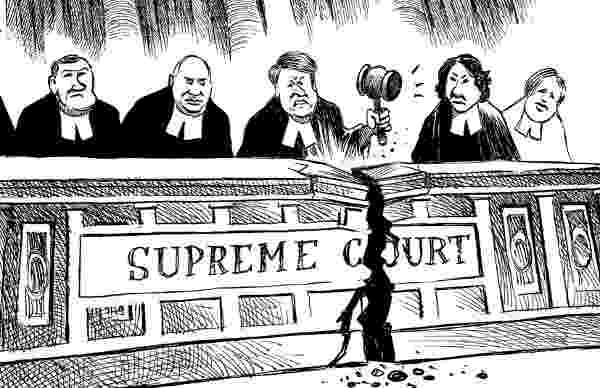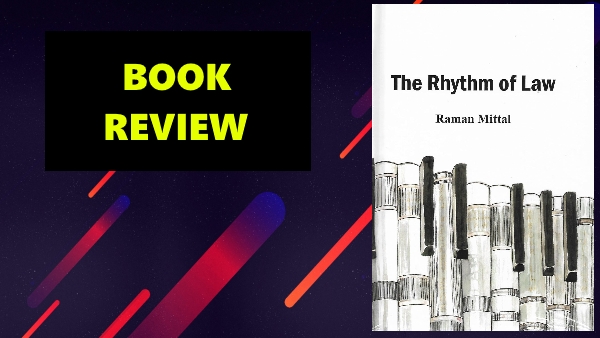Oil and Natural Gas Corporation Ltd vs Saw Pipes Ltd case come under the concept of the Indian Contract Act, 1872, along with the Arbitration and Conciliation Act, 1996. The scope of these acts in India is unlimited and their success depends on the devoid of any flaws or loopholes. Arbitration seems to be the best and efficient way for getting the dispute to be settled down. It’s a far better option as compared to time-consuming litigation process for seeking relief.
BENCH
Honorable Justice M.B. Shah
Honorable Justice Arun Kumar
RELEVANT PROVISIONS
Section 28 to 31, 34 of Arbitration and Conciliation Act, 1996
Section 73 and 74 of the Indian Contract Act, 1872
FACTS OF THE CASE
- The Oil & Natural gas Corp. Ltd. advertised a tender for the supply of casing pipes. This tender was replied by Saw Pipes Ltd. through a letter dated 27.12.1995.
- The letter contains the terms and conditions under which the SAW Pipes Ltd. supply the specified size of pipes which will be delivered by 14.11.1996.
- The Contract Deed contains that if there was any failure in the supply of the pipes then the appellant i.e. ONGC in the present case would be without prejudice to any rights or remedy. It also contains that the appellant will be entitled to recover from the respondent as agreed through liquidated damages and not through penalty.
- Both parties already decided or agreed to the estimate of damages upon. The parties also agreed it that payment of damages will be from the bill for payment of the cost of material which is sent by the respondent.
- It was in the year 1996 that there was a general strike by mill workers which almost affected the whole of Italy from where respondents supplied the requisite raw materials as they could not deliver the materials on time. Respondent takes an extension of 45 days to deliver the goods as agreed in the contract.
- The appellant granted the extension but with a condition that amount equal to liquidated damages will be recovered from the respondent. The goods were delivered to the appellant, and the appellant makes the payment but kept an amount of US Dollars 3,04,970.20 and Rs. 15,75,559. This amount of deduction was disputed according to the respondent. Hence dispute was referred to Arbitration Tribunal under Arbitration and Conciliation Act, 1996 to seek relief and resolve the dispute.
ISSUES PRESENTED BEFORE THE COURT
Whether ONGC has the right to retain liquidated damages?
INDIAN CONTRACT ACT, 1872 (Bare Act) (Latest Edition)
CONTENTIONS BY THE PARTIES
Appellant- The counsel for the appellant contended that in this case there is an obvious violation of Sections 28 to 31 of the Act or the terms of the contract between the parties. They required the said award to be set aside by the court while exercising the jurisdiction under Section 34 of the Act.
Respondent- They contended that Court’s jurisdiction under section 34 is limited and it can set aside the award because of the same conflicts with ‘Public Policy of India’. According to this submission the phrase ‘Public Policy of India’ is cannot be interpreted to mean that in case of violation of some provisions of law.
BEST BOOK FOR CONTRACT LAW: Contract Law by RK Bangia (Latest Edition)
RATIO DECNDI OF CASE
The Honorable Justice Shah stated we would first decide that whether the decision passed under section 34 of Arbitration and Conciliation Act, 1996 was illegal or in contravene provisions of the act and whether the Court was having jurisdiction to set aside the decision. Provided that it can set aside the award only when If the Arbitral Tribunal has not followed the prescribed procedure of the said act. Further, it would also be stated that if the Arbitral tribunal does not follow the mandatory procedure means that it has acted beyond its jurisdiction, the award would be illegal and can be set aside under Section 34 of the Act.
It can be stated that the concept of public policy is termed as which focuses on public good and public interest. What would be good for the public and harmful to the public would be decided from time to time. However, if the award violates statutory provisions cannot be said to be in the public interest. Such an award would likely affect the administration of justice. The award could also be set aside if it is so unreasonable which shocks the conscience of the court. Such award is adjudged to be void and opposed to public policy. The law relating to public policy is not a fixed and immutable matter rather it is being changed from passaging time.
DECISION
The decision made by the Arbitral Tribunal was in the appellant’s favor, i.e. SAW Pipes Ltd. directs the defendant to pay the amount which is not paid by the defendant i.e. Oil & Natural Gas Corp. Ltd.
ONGC moved an application to the High Court against the decision of the Tribunal. The application was dismissed by the High Court and gives no relief to the defendant’s side.
APPEAL TO HONORABLE SUPREME COURT
The defendant moves to the Honorable Supreme Court for seeking relief against the decision of the High Court. The Honorable Court upheld their appeal and order that Arbitral Tribunal was adjudged to be beyond its jurisdiction and not according to Section 32(2)(a)(v). This section mentions that procedure should be followed in accordance by Tribunal. Thus Award would be patently illegal and set aside under Section 34 of Arbitration and Conciliation Act, 1996. Therefore, the award directing the appellant to refund the US dollars 3,04,970.20 and Rs. 15,75,559/- with interest which were deducted for the breach of contract as per agreement requires to be set aside and hence set aside accordingly. The appeal is allowed and there shall be no order as to costs.





